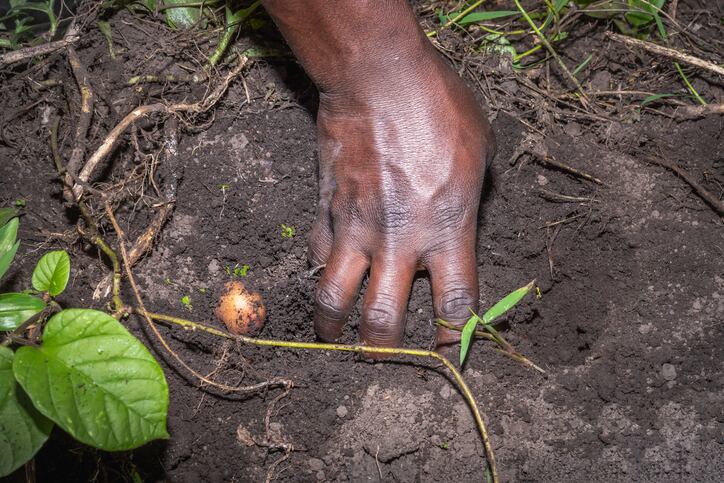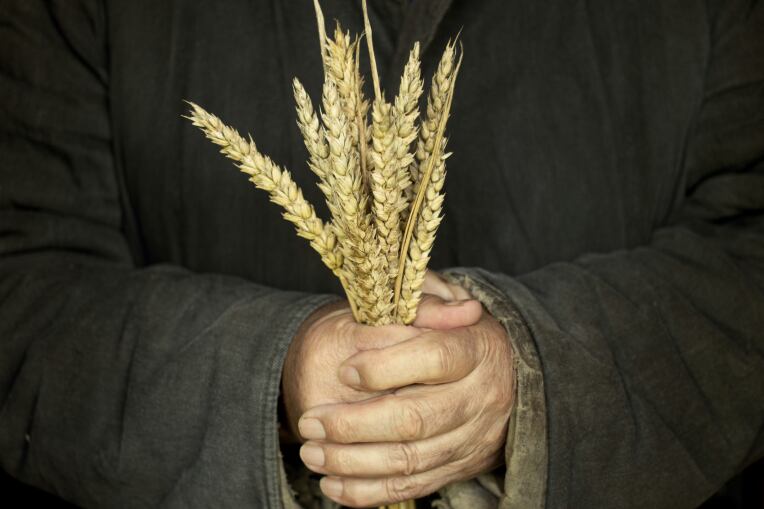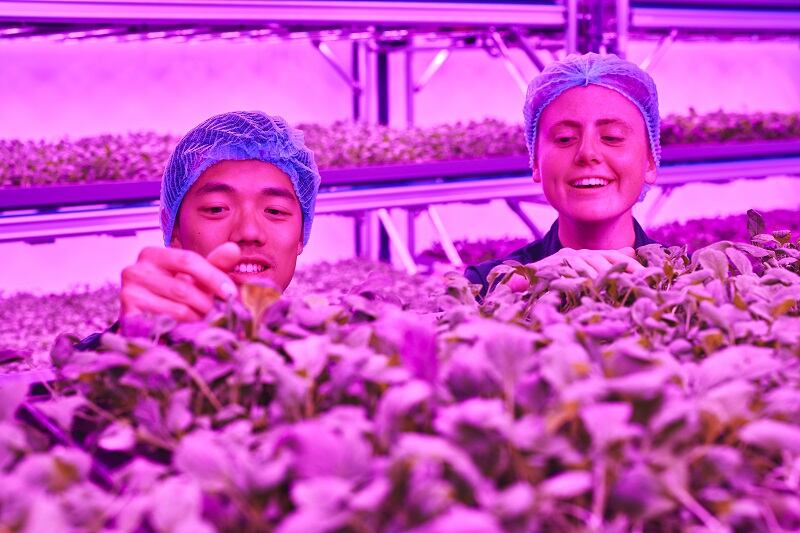Scientists are using genomics to tackle malnutrition in Africa and more. The African Orphan Crops Consortium (AOCC), founded in 2011, promotes the production of nutritious orphan crops to consumers in Africa through the adoption of modern breeding methods for crop improvement purposes. The AOCC is based at World Agroforestry Centre (WAC) in Nairobi, Kenya. Its goal is to sequence, assemble and open-source the genomic data from over a hundred traditional African food crops to improve their nutritional content, productivity and climatic adaptability. These often-overlooked crops can potentially both increase farmer incomes and combat malnutrition and childhood stunting in the continent. “This is a very ambitious project to sequence assemble and annotate the genomes of 101 crops that haven’t been studied before,” explained WGA Director General Dr Tony Simons.
In 2017, it teamed up with US-based company Illumina, a specialist in DNA sequencing and array-based technologies. The project uses technology from Illumina, specifically the HiSeq 4000, which can sequence up to 12 genomes, 100 whole transcriptome samples, or 180 exomes in three and a half days or less.
The future of the African food system?
AOCC Founder Howard-Yana Shapiro estimated this technology would dramatically speed up its plans. “I thought it would take me 17 years to complete the work,” he said. “With this machine it will take maybe three or four years. It’s a startling change in capabilities.” The AOCC plans to train hundreds of plant breeders in Africa in order to be able to breed new lines of more nutritious plants. “In 10 years, these 101 crops will be the fundamental basis for the African food system,” said Shapiro.
“We got involved because it was the right thing to do,” added Associate Director of Agrigenomics Dr Ryan Rapp. “We recognized the impact that genetics could have on these crop species to really drive food security and nutrition across the continent. By placing this machine here in Africa we’re hoping to enable the region with one of the most powerful sequencing instruments on the continent to really drive that mission forward.”
The project stressed the distinction between genomic sequencing (where scientists can use sequence information to, in effect, turn certain genes on or off) and genetic modification of plants, which adds a specific stretch of DNA into the plant's genome to give it new or different characteristics.
“Genomic sequencing is revolutionizing the agricultural sector at the moment,” said Dr Ranjana Bhattacharjee, a molecular geneticist at the International Institute of Tropical Agriculture (IITA) in Ibadan, Nigeria. Dr Bhattacharjee was recently awarded the 2022 Illumina Agricultural Greater Good Initiative grant. This is given to proposals that will increase the sustainability and productivity of important food commodities and livestock species.
Breeding a more resilient ‘king of crops’
Bhattacharjee is using whole-genome sequencing to breed a more resilient yam in West Africa. In many tropical countries, yams are known as the ‘king of crops’. Worldwide, they’re the fourth most utilised root and tuber crop - after potatoes, cassavas, and sweet potatoes - and they feed hundreds of millions of people.
Because yams are cultivated in many different regions, they’re also incredibly diverse: to the tune of about 600 species, and each of those species comes in multiple cultivars, or varieties. The world’s largest producer is the West African ‘yam belt’, stretching from southeast Guinea to northwest Cameroon, with Nigeria contributing the highest yield.
The yam not only helps provide food security and nutrition, it’s also an integral socio-cultural symbol. They often play an important role in wedding ceremonies and festivals.
But as widespread and important as yams are, they have largely been ignored by researchers, especially compared to other root and tuber crops, said Dr Bhattacharjee.
When she joined the IITA in 2009, she revealed, the knowledge on yam genomics was limited due to lack of funding. However, she recognized the nutritional and economic importance of these starchy tubers and became motivated to carry out in-depth genomics-assisted research on them.
As the 2022 grant winner, Bhattacharjee will be able to do whole-genome sequencing of about 1,000 Guinea yam samples - one of the largest numbers of yam samples ever sequenced. This will be achieved thanks to another Illumina sequencing system, the NovaSeq 6000.
Dr Bhattacharjee and her colleagues are eager to use the grant to understand the genetic relationships between different species (both cultivated and wild) of yams in West Africa, and to study specific genes of the crop that can confer disease resistance, resilience, and higher yield. The sequencing data will be made public on IITA’s open-access platforms.
Boosting the status of orphan crops
She hopes that with this sequencing project, the amount of knowledge generated will change the status of this orphan crop. The yam is a crop with “huge potential”, added Dr Robert Asiedu, former yam breeder and director emeritus of IITA-West Africa. But “modern, high-throughput tools and technologies are needed to try and transfer targeted characteristics from one species to the other,” he explained.
For example, when the reserves of domesticated yams become scarce, yam farmers and breeders often go foraging for wild varieties, which they then cross with farmed or cultivated varieties. But this process is laborious, and has not been optimized, explained Dr Asiedu. Although yams can grow well without fertilizers or herbicides they must be staked, mounded, and routinely monitored for weeds. Farmers and breeders must wait about a decade to develop a new variety or hybrid.
“If children cannot have adequate nutrition their whole cognitive abilities are compromised from the beginning and while they are expected to study and learn and grow. So the future of a whole generation is really put at risk if you cannot assure food security,” added Dr Asiedu. “With the Illumina award we will make a big jump in the work we are doing on the yam to benefit millions of farmers.”
Dr Bhattacharjee hopes the partnership with Illumina will ultimately halve the time it takes to develop a new cultivar and help identify traits that will provide more clues toward improving such an important crop through comparative genomics. “At the end of the day, the goal is to make a crop more resilient,” she said. “I think there is a need for the world to recognise the need for the yam and start investing in this fantastic crop and make sure its value can be realised.”





